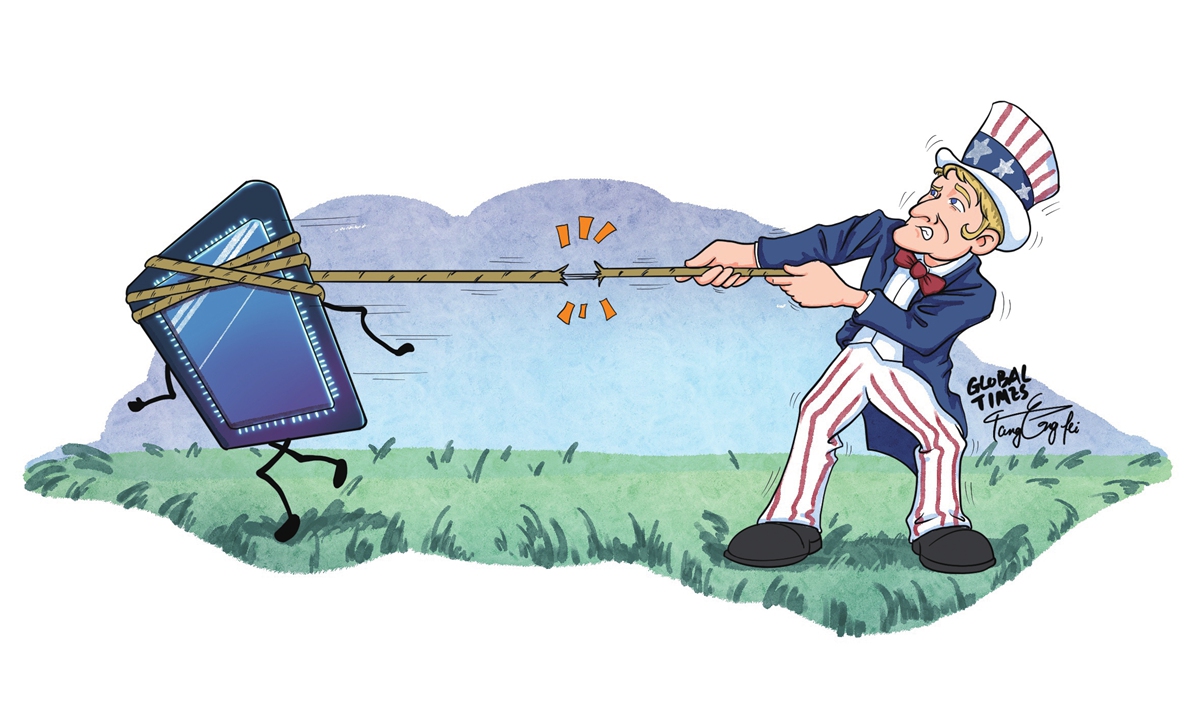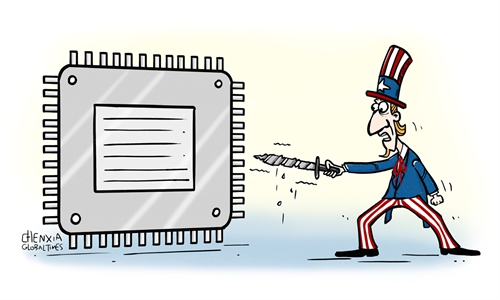
US' political coercion in chip industry poses a global threat. Illustration: Tang Tengfei/GT
US Vice President Kamala Harris met on Wednesday in Japan with the heads of some semiconductor-related businesses, explaining the US government's incentives for chipmakers, according to a Reuters report.
Chinese observers described the move, which comes amid Harris' visit to Japan to attend the state funeral of former Prime Minister Abe Shinzo, as indicating Washington is taking every opportunity to push for the US-led chips circle to contain China, but the lack of response from its Asian allies signals slow progress in pushing the plan.
Harris is also expected to "tout the benefits of those companies moving manufacturing hubs away from a dependence on single, low-cost countries like China".
Executives from at least 13 companies will attend, including Sanken Electric, Tokyo Electron, Hitachi High-Tech, Fujitsu and Nikon, Reuters reported.
The US' ambition to push the chip circle is obvious, and it's now using every opportunity to promote it - even during a funeral, Ma Jihua, a veteran technology analyst, told the Global Times on Wednesday.
Ma noted that Japan is the country that is most willing to participate in the plan, but it seems that even Japanese firms must be "lobbied hard" to move manufacturing lines to the US.
The reported meeting comes after the CHIPS and Science Act was signed into law by US President Biden in August. The law provides $52.7 billion for American semiconductor research, development, manufacturing and workforce development, including $39 billion in manufacturing incentive.
Although US officials have stressed that the legislation is primarily intended to strengthen US chips production, the content of the law shows the untold motif of assaulting China's chip industry. For instance, the act requires that recipients do not build facilities in China and other countries of concern, a White House statement showed.
The US reportedly plans to organize a preliminary "Chip 4" meeting this week, and another science and technology meeting with the island of Taiwan in early November, to bring semiconductor manufacturing back to the US.
So far, none of the parties have made a clear statement on the US proposal, because it's easy to do the math - the proposed subsidies can hardly compensate for the high cost of building a factory in the US, let alone the heavy toll of leaving the Chinese market, Ma said.
According to a report by the Financial Times, South Korea's science minister has said a "sense of crisis" is gripping the country's semiconductor industry.
"There is growing fear among Korean officials and industry executives that the country will shed production facilities as domestic chipmakers, lured by subsidies and other incentives, move to build semiconductor plants in the US."
"The US may continue to lure parties involved through both 'carrots and sticks,' which the US is good at," Ma said.
Global Times



